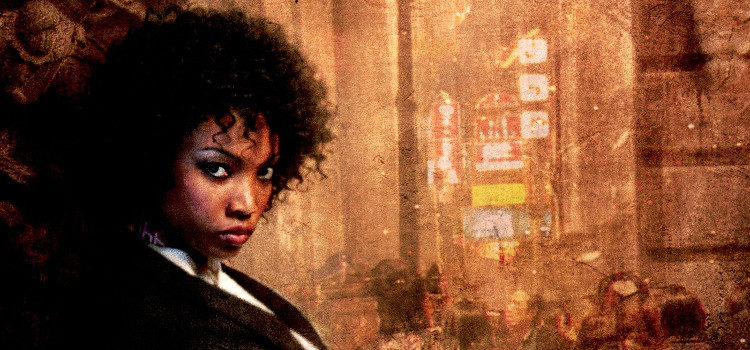A young woman in private practice after being cast out of the academy in disgrace, is hired by a partner in a major firm to assist in a post bankruptcy restructuring of a global entity, but a range of opponents both old and new are arrayed against her. Oh and the practice is wizardry, the academy was above the clouds, and the entity being restructured is a god.
There is no getting around it, Three Parts Dead feels like it was written just for me.1 It takes the excitement of a John Grisham legal thriller and places it firmly in the fantasy milieu, displaying the best of both genres. The world building here is better than almost any other contemporary fantasy setting, both intricate in its detail and coherent in its design, and the plot is a fast paced exciting mix of reveals, courtroom drama, and dangerous confrontations. In fact this undersells Gladstone’s achievement here, what he does with this, and indeed the whole craft series, is to take the social and economic advances that we have made, and translate them to a world based on magic, rather than science, creating an analogue of the modern world born from a magical revolution rather than an industrial one.
It helps that Tara Abernathy is a nearly perfect point of view character. She is smart, strong, singular in purpose, unwilling to take shit from anyone, yet still young enough to make mistakes and get in over her head. She introduces us to her world with a degree of sardonic detachment and wry humor that makes the utterly fantastic seem, if not normal, then explicable. She’s just an everyday necromancer, covered in scars and digging up bodies, trying to make it after being turned on by those around her. If Tara was the only point of view character I would be happy, but the book is full of great POVs, from the junior priest who has been elevated by being in the wrong place at the wrong time, to the police officer with some strange hobbies. Best of all is Elayne Kevarian, partner in a prestigious firm, consummate professional, feared veteran of the god wars, and a constant reminder that good and nice are not necessarily the same thing.
The icing on the top of the cake is that plotting and action are really great. Because law and magic are intertwined, the court room scenes are incredible: unholy hybrids between legal debates and magical duels. The antagonist is the most banal of evils, a legal academic trying to prove a point, fleshed out by being one of those many men who uses his success to take advantage of others (notably all women). Gladstone even manages to nail the ending, even though the rules of the world are different, the resolution feels earned, and resolves enough of the issues to make the book feel complete, without tying everything up in a nice bow. There is pretty close to a perfect novel for me.
One of the best fantasy novels I’ve read that opens up one of the best fantasy series around.
Hugo Comments 2013
I first reviewed this as part of my Hugo 2013 read through – I include my original review below.
Hugo Nominee 2013 – Campbell award review 5*
In a world where the economy is built on the transfer of magical energy as a means of exchange, all contracts are magical, and all lawyers are magicians. This is a book that grows organically from this great setting – a combination of high fantasy crossed with a modern aesthetic (skyscrapers and gods, lawyers in suits with knives). We can describe the main character as a young lawyer who has thrown out of university on graduation who finds herself recruited by a major firm to litigate the receivership and possible bankruptcy of a major interest, or as a young magician cast out of her school in the sky and recruited to try to save a god. Either way, this book is well worth reading. Particularly recommended to anyone who ever wondered what the cross over between fantasy and legal thriller would look like, or like me you have a law background and a love of fantasy.
* I haven’t found a place to put reviews of the other two short stories that would constitute review 4 – long and the short, solidly mediocre.
Hugo thoughts.
Another excellent book in the best new author category. Skip the best novel nominees and go straight to the Campbell nominees for the more interesting books in the year (though, sadly, science fiction is not represented well here (only one of the short stories was SF, and that was only OK)).
